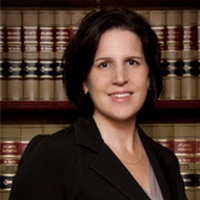Pemberton Estate Lawyer, New Jersey
Sponsored Law Firm
-
 x
x

Click For More Info:
-
Hulse & Wynter, LLC
1624 Jacksonville Road Suite 1 Burlington, NJ 08016» view mapEstate Law 40 Years of Experience
The attorneys at Hulse & Wynter offer reliable legal solutions to individuals and businesses in the areas of real estate, family, probate, bankruptcy and business law.
800-611-9690
Vincent Joseph Gaughan
✓ VERIFIEDDivorce & Family Law, Motor Vehicle, Estate, Criminal, Landlord-Tenant
Vincent Gaughan is a practicing lawyer in the state of New Jersey.
Gary F. Woodend
Real Estate, Wills & Probate, Criminal, Banking & Finance
Status: In Good Standing Licensed: 36 Years
 Gracy Wynter Burlington, NJ
Gracy Wynter Burlington, NJ AboutHulse & Wynter, LLC
AboutHulse & Wynter, LLC Practice AreasExpertise
Practice AreasExpertise

